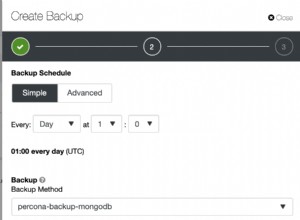Niestandardowe Marshalling/Unmarshalling bson działa prawie w ten sam sposób, musisz zaimplementować odpowiednio interfejsy Getter i Setter
Coś takiego powinno działać :
type Currency struct {
value decimal.Decimal //The actual value of the currency.
currencyCode string //The ISO currency code.
}
// GetBSON implements bson.Getter.
func (c Currency) GetBSON() (interface{}, error) {
f := c.Value().Float64()
return struct {
Value float64 `json:"value" bson:"value"`
CurrencyCode string `json:"currencyCode" bson:"currencyCode"`
}{
Value: f,
CurrencyCode: c.currencyCode,
}, nil
}
// SetBSON implements bson.Setter.
func (c *Currency) SetBSON(raw bson.Raw) error {
decoded := new(struct {
Value float64 `json:"value" bson:"value"`
CurrencyCode string `json:"currencyCode" bson:"currencyCode"`
})
bsonErr := raw.Unmarshal(decoded)
if bsonErr == nil {
c.value = decimal.NewFromFloat(decoded.Value)
c.currencyCode = decoded.CurrencyCode
return nil
} else {
return bsonErr
}
}




